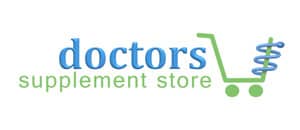
One-fifth of US citizens have Coronary Heart Disease (CHD). Cholesterol levels in the blood stream are considered the primary cause of CHD by the American Heart Association. Many factors contribute to CHD, but cholesterol has been the main focus. This article will discuss the possibility that cholesterol levels and elimination of cholesterol and fat (especially saturated fats) from our diets may not be directly related to heart attacks.
First, let’s talk about what cholesterol does for humans. Cholesterol is needed to line the membranes of our cells (37.2 trillion cells), build myelin tissue (which is lost with MS and Alzheimer’s disease), and all of our sex hormones and adrenal hormones. All of these tissues are vital to health. In addition, the body uses cholesterol to make bile which the liver uses for detoxifying, digesting fats properly and to decrease high estrogen levels. So my dear reader, cholesterol is very important to life and health.
Our bodies make 80% of the cholesterol that it uses. Our liver makes cholesterol from fats and lecithin, clears the older cholesterol out of our bodies and makes bile from it. It has been shown that when we eat less cholesterol our liver will make more cholesterol and when we increase our cholesterol it will make less. This fact tells us that the body will regulate cholesterol by its capacity to make more or less of it and we get more cholesterol from our own bodies than diet.
The movement of our established healthcare system to make cholesterol public enemy #1 was by Dr. Ancel Keys in the 1950’s; who proposed that all fat consumption was the cause of elevated cholesterol in the blood and the direct cause of clogged arteries. Then the details changed to: saturated fat was the true cause to clogged arteries and poly and mono saturated fats were the “good” fat that were either neutral or could lower blood cholesterol. This idea has not changed in 60 years.
Since this time interesting developments have surfaced. Forty percent of people who have heart attacks have no narrowing to their arteries. Dr. D. Mark Hegsted, a Harvard School of Medicine professor stated: “In the U.S. about one-half of heart attacks apparently occur with in individuals with serum cholesterol levels below 240 mgdL.”
The growth of getting CHD has increased in the U.S. since the 1950’s, yet the deaths from having CHD is less. This means our healthcare system has done a great job of helping people survive a heart attack. This is great! However, if you are like me, it’s best to not approach this condition in the first place.
What can be done to ensure your health? Recent studies have shown that there are better predictors to heart attacks and disease than cholesterol levels alone. These are:
- Triglyceride levels above 100 mb/dL. This is usually done with your regular blood work. You can lower your TG’s by lowering your sugar consumption.
- C and HSP C are proteins in the blood that can distinguish acute and chronic inflammation. The lower these are the better you will be. You can decrease your inflammation by eating better fats, omega 3’s, find food allergies and decrease your stress. These are not all of the causes but a great place to start.
- The particle size of cholesterol has shown promise as a predictor to heart attacks; the larger the particles, the better. There are a few blood draw tests that can show the particle size; including the Boston Heart Study. This test, as well as others can be affordable with or without insurance, but it may be difficult to find a physician that does them.
These are just a few of the lab markers that seem to have a better predictive value, however unknowns will always exist. It’s best to talk with your physician about your risks.
If you are still concerned about your cholesterol levels; that is understandable. In additions to medications as a means to lower your cholesterol you can try Phil Maffetone’s method of aerobic exercise (this is on my web page). You can also try Red Years Rice, Soy Bean Lecithin, Niacinamide, and Cyruta. You can get these supplements in health food stores, online or at my office.
Most of this article was referenced from:
“The Cholesterol Myths”, Uffe Ravnkov, MD, PhD
“Cholesterol Facts & Fantasies”, Judith DeCava, CNC, LNC
“Conversations in Nutrition”, Royal Lee, DDS and John Courtney






